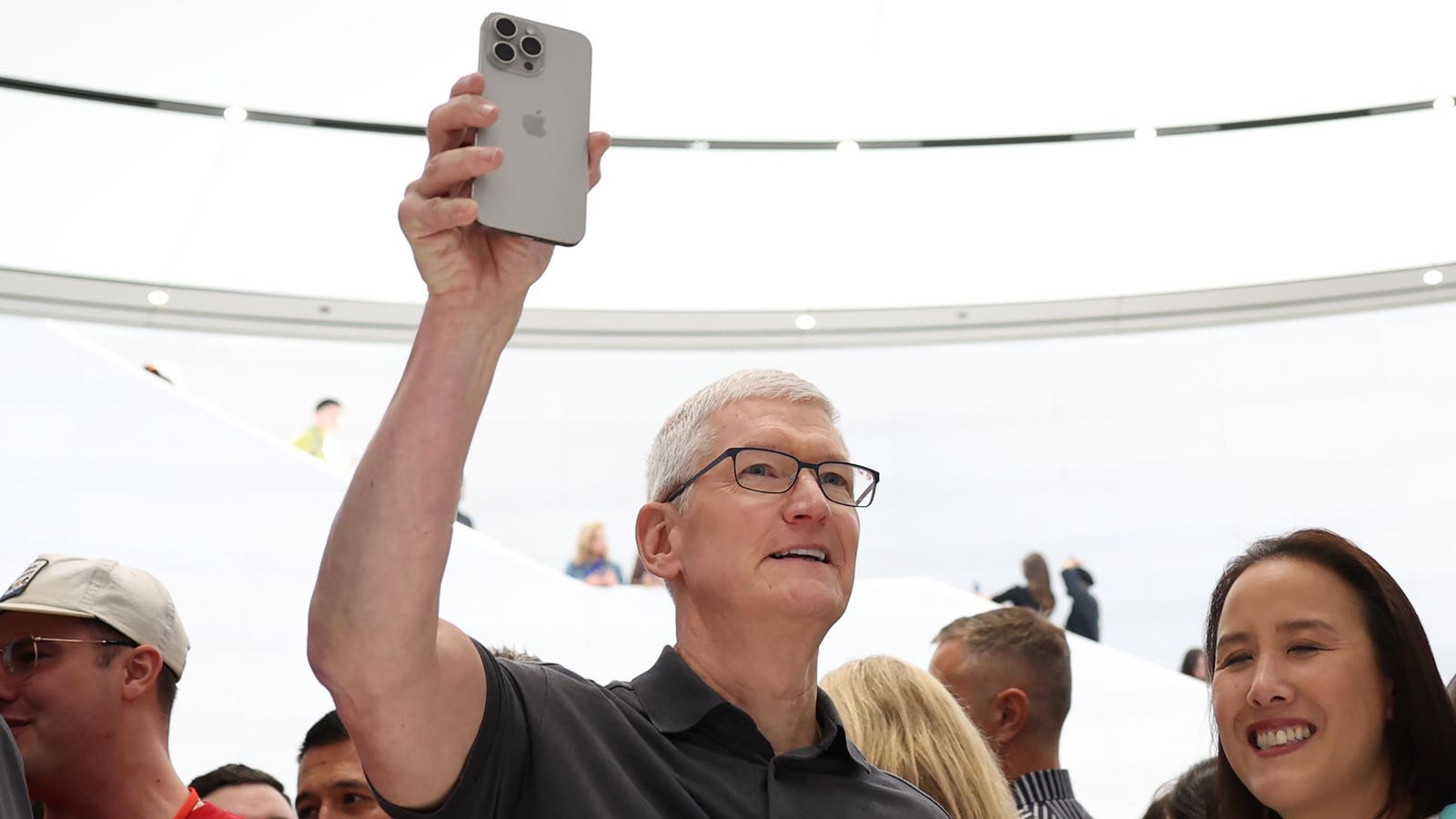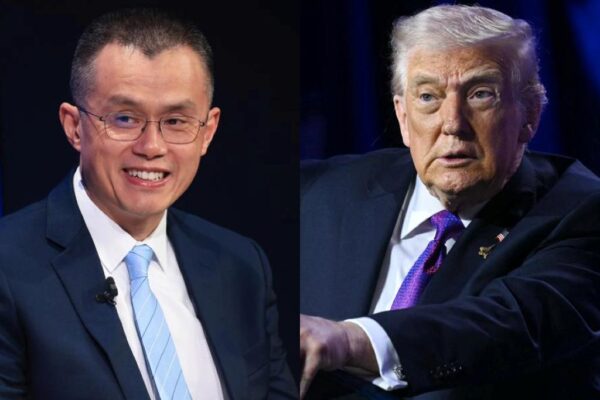Apple Opens Up NFC Interface And Secure Element. This Is Huge.
CUPERTINO, CALIFORNIA – SEPTEMBER 12: Apple CEO Tim Cook holds up a new iPhone 15 Pro during an … [+] Apple event on September 12, 2023 in Cupertino, California. (Photo by Justin Sullivan/Getty Images)
Getty Images Apple has announced that any third-party wallet can now build on Apple’s Near Field Communication (NFC) and Secure Element (SE) architecture. As industry expert Tom Noyes immediately pointed out, this is no “spur of the moment announcement” and Apple must have been working on this for some time. It is huge.
It is huge because the opening up of this hardware will transform both the digital payments and the digital identity ecosystems: the SE is tamper-resistant hardware, the same kind as your mobile phone’s SIM and on your chip and PIN cards, and developers can use it to manage the cryptographic keys that power our online lives.
(It also huge to one particular kind of organisation that will be very pleased about Apple’s move and that is the European Central Bank. They want to deliver a digital euro, and access to the SE is vital in this context because it critical for mobile device-based offline payments.)
In my view, this is good for the ecosystem as a whole but it is also good for Apple. Apple needs competition as a spur to improvement just as the rest of us do. It may well be the case that Apple’s proven expertise in convenience and ease of use will mean that consumers will continue to prefer the Apple wallet in all cases, but there is plenty of room for competition.
Here’s what I mean. I am a huge Apple fan, have an all-Apple ecosystem in place both at home and at work. That does not mean I use Apple solutions for everything! I use Outlook for my work e-mail despite the fact that I have Apple Mail. I still use iMessage to send the occasional text message but 99% of my messaging is not Apple. When it comes to messaging, I use WhatsApp for family and friends and Signal for a lot of business messaging. In fact pretty much everyone I know is in a WhatsApp family group and a bunch of WhatsApp friends groups. I have one for organising Duncan and Dragons games, for example!
Read More: Stablecoins And Unstable Economies: The Currency Warm War Has Begun When I was walking around the streets of Wellington, New Zealand last week, I was using Google Maps to navigate to a conference venue even though I have Apple Maps on my phone as well. When I am driving in my car, I have Apple Maps in CarPlay but I generally use Waze. When I am writing, to take another immediate example, I tend to dictate directly into ChatGPT (which is what I am doing know) because it is pretty good at not only taking the dictation but the styling of what I am saying, and then I take the output from that to use as the input to this article.
The point is that while I remain a steadfast purchaser of Apple devices, apps, and services, I do not find myself reliant solely on Apple’s ecosystem. Numerous third-party providers deliver distinctive functionalities, innovative methods and creative solutions that enhance my work, rest and play digital experiences. I anticipate a similar dynamic will unfold with the Apple Wallet, as alternative providers will inevitably present competitive, and perhaps superior, options.
The real discovery.
© HELEN HOLMES (2022). Wallets are about much more than payments though. If you look in my wallet right now, you won’t find cash of any description, but you will find my driving licence, payment cards, loyalty cards (eg, Waitrose), membership cards (eg, the AA) and a season ticket for Woking Football Club. These are all about identity. And they are all much better implemented as verifiable credentials than as pictures of the physical objects stored in my iPhone library (which is what they are now). I don’t doubt that the developers of pilot projects for the European Digital ID Wallet are already gathered around their whiteboards planning a new future of enhanced convenience and enhanced security.
Hence my fundamental prediction that the new ecosystem will have more of an impact in the world of identity than in the world of payments because the ability to use secure elements in both Android and Apple applications means that developers can bring into existence the kind of digital public infrastructure (DPI) that has long been needed in the US and elsewhere (eg, the UK). Apple has said that they will not charge governments for access to the ecosystem, although they will obviously (and quite reasonably) charge for commercial access. This will immediately mean that digital driving licenses and passports and all other kind of official documents, permissions and credentials will find their way into wallets.
There are some great commercial opportunities here. An example of what I mean, I think it is quite easy to imagine that there will be some kind of Ticketmaster wallet that will be developed in the ecosystem so that tickets to concerts and sporting events become NFTs that cannot be lost, stolen or counterfeited because they are stored in wallets that have the private key in the secure element. I might keep my Apple wallet as the default for when I tap and go at the store, but it will not be the only wallet that I use.
Apple’s move will add both security and convenience to many kinds of digital wallet and it seems to me that Jamie Smith’s contention that the digital wallet will be become the key channel between customers and brands — more trusted than SMS, less spammy than e-mail, more portable than an app — is looking more accurate than ever.












 Bitcoin
Bitcoin  Ethereum
Ethereum  Tether
Tether  XRP
XRP  USDC
USDC  Solana
Solana  TRON
TRON  JUSD
JUSD  Dogecoin
Dogecoin